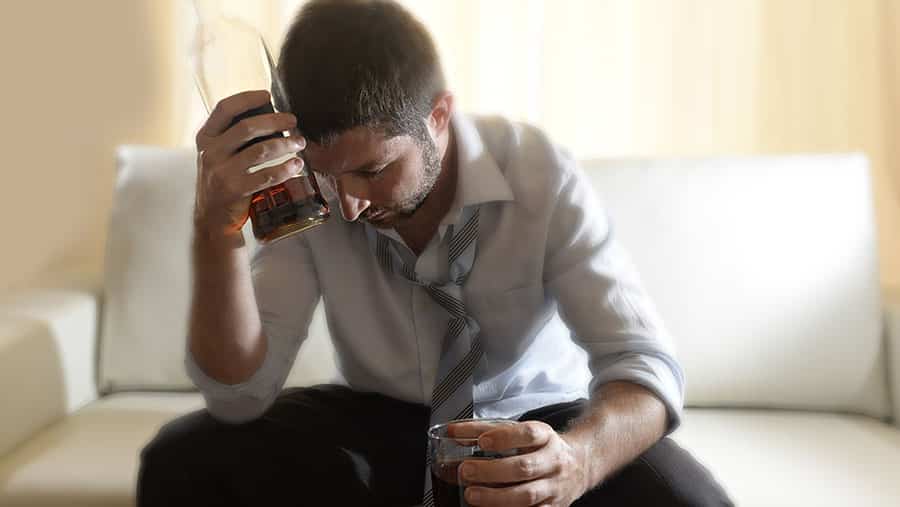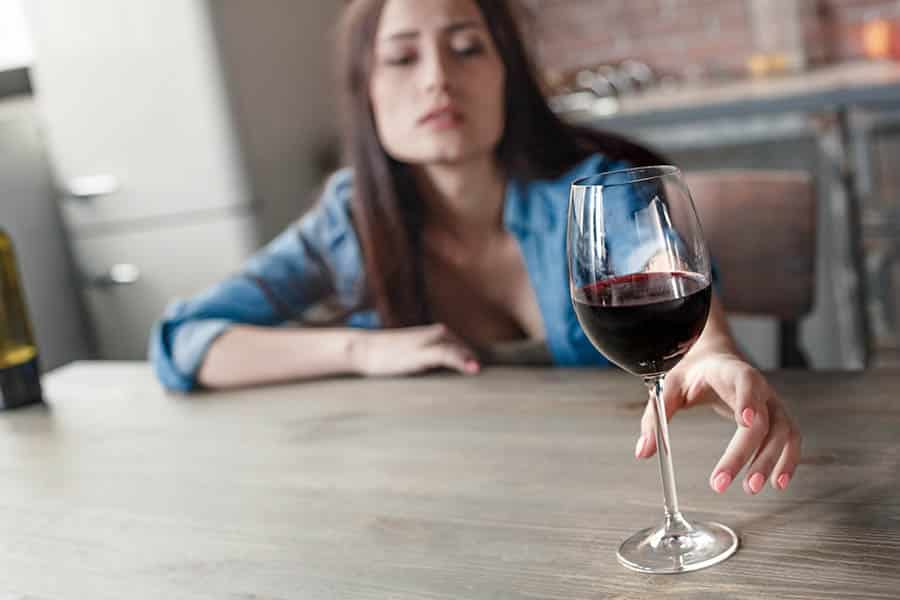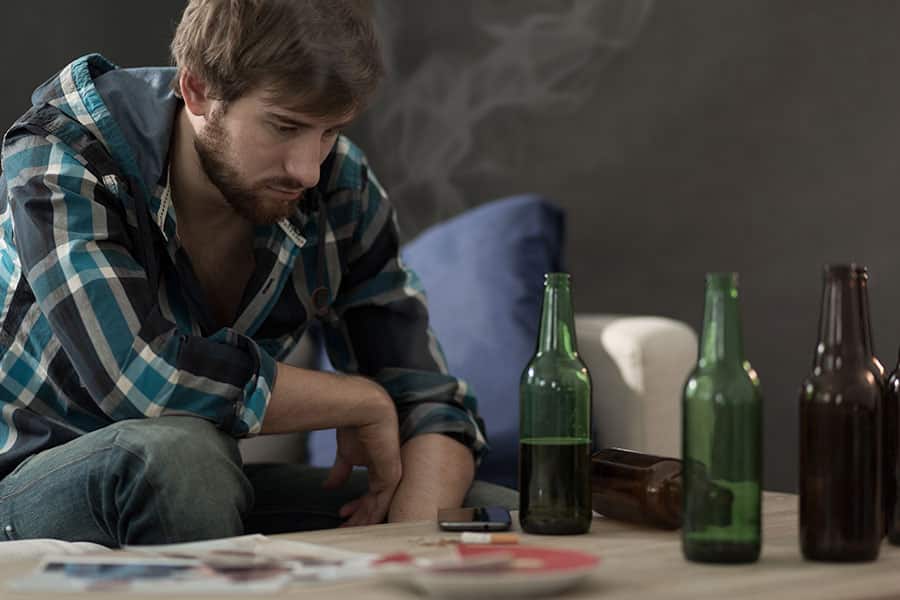How To Avoid Drinking Too Much During COVID-19
It’s a difficult time to not want to sit back and relax with a cold beer or glass of wine at the end of each day. You might be tempted to find relief after watching the news, suffering the loss of a loved one, getting laid off, or spending an abnormal amount of time with your significant other, children, or roommates. You may even be living completely alone while social distancing orders persevere, causing you to feel extremely lonely and disconnected from your loved ones and the entire world.
Studies have shown that many people are feeling a little zapped since the onset of COVID-19 and, sometimes unfortunately, are turning to alcohol for relief. Alcohol sales are skyrocketing and many people are becoming a tad bit stir-crazy.

Moderate drinking is generally considered safe. Though not everyone is prone to developing an addiction to or dependency upon alcohol, it can be easy to fall into powerful and habitual routines when using mind-altering substances.
Struggling with overconsumption of alcohol is nothing to be ashamed about. In fact, if you have arrived at this article looking for a little support, we’re extremely glad. We will help you.
1. Understand What Is “Too Much” Alcohol
Many people wonder how much alcohol is “too much” alcohol. Although the answer to this question can vary from individual to individual, the Centers for Disease Control and Prevention (CDC) recommends certain dietary guidelines for the average American man and woman.
In general, the CDC recommends that women have no more than 1 drink per day and that men have no more than 2 drinks per day. For women who are pregnant, those recovering from alcoholism and addiction, and people taking certain prescription medications, drinking even a small amount is a problem and ought to be avoided.
Binge drinking is considered 4 drinks or more a day for women, and 5 drinks for men a day. If you find yourself engaging in binge drinking, it may be best to cut down on your alcohol consumption or seek treatment for substance abuse issues.

2. Identify Your Triggers
Be honest – have you felt bored a lot lately? Are you lonely? Are you uncertain and afraid for your future? Are you stressed out by your job – or lack thereof- or suffering from the grief that inevitably follows the loss of a loved one? Are you living with a toxic family member (or multiple toxic family members)? Has your relationship been on the rocks, prompting you to indulge in one too many gin and tonics?
You’re not alone. However, if you feel like you’re drinking too much while in quarantine, it’s often helpful to look at when you are drinking and try to determine why. It’s very possible that you’ll be able to trace your cravings backwards to an uncomfortable feeling you’re experiencing, like boredom, loneliness, or anxiety.

COVID-19 and the erratic experiences that it has brought about for so many have exposed and accentuated the fear and uncertainty in all of us. The societal modifications that have transpired as a result of COVID-19 have left a plethora of U.S. citizens vulnerable to depression, addiction, and other mental illnesses.
Try to identify your triggers and cope with them accordingly with some of the methods below.
3. Discover Whether You Have A Co-Occurring Mental Illness
Many people who abuse alcohol and other substances suffer from a co-occurring mental illness, such as depression, anxiety, bipolar disorder, or personality disorders.
Unfortunately, COVID-19 has exasperated many peoples’ mental health conditions and led them to self-medicate. Other people are starting to see the emergence of mental health conditions they may have previously been able to ignore or suppress, but that are now making themselves known the more time that we spend with ourselves.
Self-medication can often start innocently, being a simple attempt to feel better and relax. However, repeated self-medication with drugs or alcohol can lead many people down a path of darkness and destruction.
Find out whether there is a root cause to your increased amounts of drinking. It’s very possible that you may be suffering from another mental health condition that could be prompting you to find satisfaction in external substances.
4. Avoid Escapism
It is challenging right now to avoid wanting to run away from life. Many people are jobless, have lost loved ones, and the world seems to be in a state of uncertainty.
One of the worst things you can do during uncomfortable times is reach for something that will help you escape.
However, escapism is a band aid that will not provide you long term relief. It may help to practice mindfulness and staying in the moment to avoid escapism. One of the best ways to avoid anxiety is by practicing a daily meditation and centering your focus around the here and now. You can also seek treatment through a Dialectical Behavioral Therapy (DBT) practitioner.
Dialectical Behavioral Therapy is a form of therapy offered at Hotel California by the Sea that focuses on staying in the present moment, managing mood swings and anxiety,
Everyone has different triggers for cravings – reasons we wish to reach for something that will help us escape. However, escapism only leads to the exasperation of your issues later on.
5. Set Goals
Though idle time is traditionally considered the devil’s workshop, an excess amount of free time can be an opportunity for many of us. If we learn to harness this time for good, for goals, and for growth, we may see monumental transformations within ourselves.
Instead of focusing on what you don’t want to do (drink too much, or at all), focus on what you do want to do and become during the novel coronavirus.
Spending more time at home can help you do plenty of the things you’ve been putting off for a while, like learning to cook, remodeling your kitchen, or simply finishing a good book. There are currently ample opportunities to take classes online (including college classes) and advance your learning.
Consider this: How much is alcohol consuming the time you could be using to pursue long-term goals and delayed satisfaction?
6. Create New Habits
Most people aren’t used to spending as much time at home as all of us have been during this global health pandemic. New environments mean new habits. Take control of your new routine by trying the following:

7. Stay As Connected As Possible
Having a strong support network of healthy individuals that will help you cut back on drinking
COVID-19 is bringing many people closer with their family members. However, it’s also making it far more difficult to see family members who might be far away from you.
For staying in touch with loved ones, try to regularly plan a phone call with a beloved friend or family member at least once a week (once a day might be even better!). This way, you can still feel somewhat connected with your loved ones and feel as though you have a virtual community.
If you need more support, be sure to try out online therapy and online outpatient treatment for alcohol abuse. In this setting, you will find support for your substance use disorder.
8. Practice Self-Care
Self-care looks different for everyone. Self-care could mean watching a movie, getting a massage, or simply reading a book. Self-care could even mean making sure you eat 3 meals a day and maintain your physical health.
However, many of the activities we enjoy are currently off-limits or discouraged due to the novel coronavirus. To make up for these gaps, it’s crucial to discover more ways to keep yourself mentally, spiritually, and physically fit.
9. Find Virtual Treatment For Alcohol Abuse Or Go To Rehab
If all else fails and you are having significant trouble cutting back or abstaining from alcohol, it may be necessary to seek out a trusted addiction treatment provider.
Whether you wish to receive virtual outpatient therapy, attend inpatient rehab, or detox safely in a medical detoxification center, there are plenty of options for you to choose from at Hotel California by the Sea.

Alcohol abuse and alcoholism tend to require treatment. If you or a loved one are struggling with an alcohol use disorder or excessive drinking during the COVID-19 pandemic, be sure to reach out to our admissions staff today. They will assist you in finding the right treatment program for you and helping you cut back on your alcohol use and help you find the most affordable and viable options for your particular situation.
*Hotel California by the Sea does not claim medical advice in this article. To find out whether you have a problem with alcohol use or may need addiction treatment, make sure to contact your health care provider or visit your physician.

